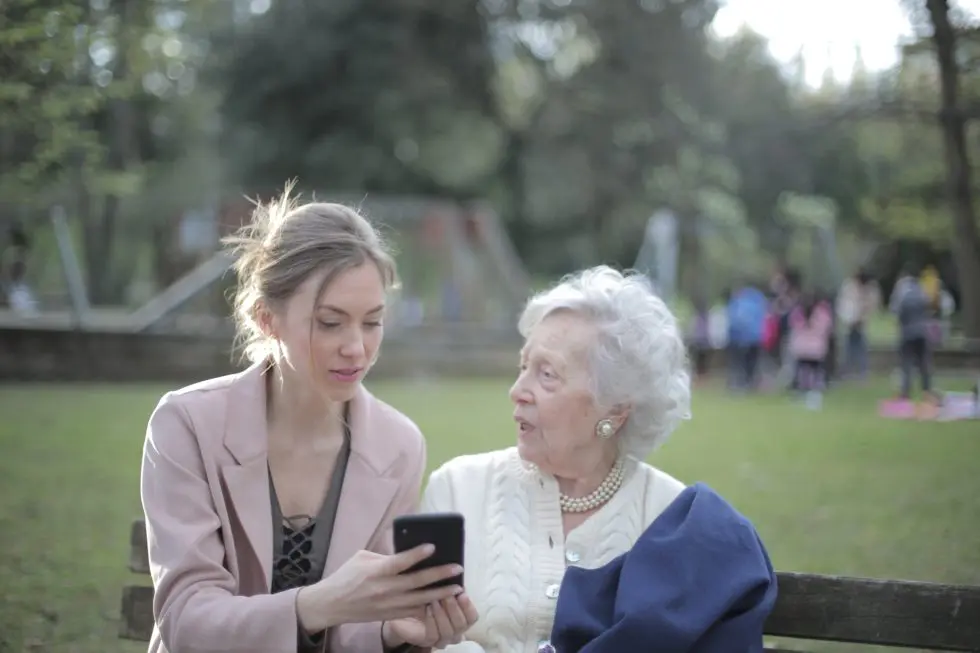Involving your families in the wedding planning process is equal parts sweet, meaningful, special…and potentially a little annoying. While you’re sure to trigger each other on occasion, it makes sense that some of the most important people in your lives should be involved in planning one of the most important days of your lives.
Here’s our guide to getting your family involved and engaged in wedding planning, the benefits of doing so, and how to delegate and organize in a way that lightens the workload.
Why Involve Your Families?
There are plenty of great reasons to include your families in this important process. Here are a few of them:
- Planning together fosters a sense of togetherness and strengthens relationships.
- Getting help also lightens your load.
- Everyone gets to contribute their unique ideas and talents, which brings a wealth of knowledge, expertise, and creativity to the table.
- Asking family to contribute conveys respect and appreciation for their opinions and desires; it acknowledges the significance of their presence and involvement in this important milestone of your life.
- Involving your families gets them to feel a sense of ownership and pride in the celebration, making them more invested and enthusiastic about the event.
- It can also help bridge the gap between different generations, cultures, and traditions, which translates to a harmonious and inclusive atmosphere for everyone present.
- When family members are invested in planning, they may also offer to contribute financially. This eases some of the monetary burden on you and your future spouse.
How to Involve Families in Wedding Planning
Now that you’re sold on why it’s so great to get your families to participate in wedding planning, here are the most crucial guiding principles for a successful collaboration with them.
Assign Tasks and Responsibilities
Delegate specific tasks and responsibilities to family members based on their strengths and interests. This could include researching vendors, creating wedding playlists, designing invitations, or coordinating transportation. When given a specific task, families become actively involved and take ownership of their roles.
Wedding Committees
Another way to delegate is to form wedding committees comprised of family members; this streamlines the planning process and distributes responsibilities effectively. Committees can focus on specific areas such as decorations, logistics, or entertainment. This division of labor ensures that every family member can contribute meaningfully. It also keeps the planning process organized.
Encourage Input and Ideas
Enthusiastically encourage your families to contribute their ideas and suggestions. Whether it’s selecting the wedding theme, choosing the menu, deciding on the color scheme, finalizing the guest list, or choosing a venue, enlisting families in the decision-making process enhances their sense of investment in the wedding. Embrace their creativity and unique perspectives, as this will make the celebration more diverse and memorable.
Communicate Effectively
Open, honest communication is key to involving family members in the wedding planning process. Start by openly discussing your vision and expectations with your families. Be receptive to their input, ideas, and concerns, while still being ready to draw boundaries where necessary. Maintain regular communication channels, such as group chats and emails, to keep everyone informed and engaged.
Organize Family Meetings and Brainstorming Sessions
While electronic communications are an important part of staying organized, you’ll also benefit from arranging regular family meetings or brainstorming sessions. Discuss wedding plans, address concerns, and generate new ideas in person. These gatherings provide an opportunity for families to bond, share their excitement, and contribute collectively to the wedding. It also ensures that everyone is on the same page and working towards a common goal.
DIY Projects
Engage your families in do-it-yourself (DIY) projects to add a personal touch to your wedding decor and details. Have them craft centerpieces, design invitations, and contribute their own ideas for DIY projects. DIY together to share creativity and quality time. Not only will your families feel a sense of accomplishment, but the wedding will also reflect your collective efforts and love–and you might get complimented on your creations!
Celebrate Family Traditions and Customs
Weddings are an opportunity to honor family traditions and customs. Incorporate meaningful rituals or ceremonies that reflect your families’ cultural or religious backgrounds. This inclusion not only pays homage to your heritage but also allows families to feel connected and proud of their traditions.
Create a Sense of Inclusion and Belonging
Ensure that every family member feels included and valued throughout the wedding planning process. Assign roles or responsibilities that make everyone feel part of the celebration. Encourage family members to contribute their personal touches, such as sharing family recipes. By fostering a sense of belonging, the wedding becomes a cherished shared experience for all.
Come up With Ways for Long-Distance Family Members to Participate
For family members who are geographically separated, it’s essential to find ways to include them in the planning process. Utilize technology by organizing video calls or virtual meetings to keep distant relatives engaged and updated. Assign tasks that can be accomplished remotely, such as researching local vendors or arranging accommodations for out-of-town guests. Remember to express gratitude for their efforts and acknowledge their roles in the wedding, regardless of the distance.
Accept Emotional Support
Family roles in the wedding planning process extend beyond logistical tasks. They are also there to provide emotional support during this significant and sometimes stressful life event. Some of your family members can offer a listening ear, provide guidance, and share in your excitement and challenges–so let them. Accepting their emotional support is also an opportunity to strengthen family bonds.
Plan Collaborative Events
In addition to the wedding itself, plan collaborative events that allow your two families to bond and get to know each other better. After all, a wedding isn’t only a marriage of two individuals; in a sense, it’s a union of two families. So organize pre-wedding activities like bridal showers, engagement parties, or family outings. These occasions offer a relaxed and enjoyable setting for families to come together, build relationships, and forge new memories.
Respect Boundaries
While involving your families in the wedding planning process is valuable, it is important to respect their boundaries. Recognize that not everyone may have the time, resources, or desire to be deeply involved. Allow family members to choose their level of participation and be understanding if someone prefers a less active role. Remember, the goal is to create an inclusive and enjoyable experience for all.
Tips for Managing Conflicts and Disagreements
It’s natural for conflicts and disagreements to arise during the wedding planning process. To maintain harmony and avoid unnecessary tension, utilize these strategies:
Listen Actively and be Willing to Compromise
Actively listen to the concerns and viewpoints of family members. Practice empathy and be open to compromising on some points. Before you go into a high-stakes conversation, identify your negotiables and non-negotiables. You can be firm when it comes to your non-negotiables, and be ready to compromise on some of your negotiables. By demonstrating a willingness to find common ground, conflicts can be resolved amicably and you can get back to the fun part more quickly.
Don’t be Afraid of Conflict
Conflict is normal when any group of people works together–and it’s not a bad thing. Through conflict, people learn where one another’s boundaries and triggers are and come up with creative solutions to problems. Also, a conflict repaired successfully brings about a renewed sense of closeness that makes the relationship between the parties who were in conflict even more resilient after the conflict is repaired than it was before the conflict arose. So if a conflict is coming up, don’t run away–go through it and come out stronger on the other side.
Seek Professional Help if Needed
If conflicts persist and become unmanageable, seek professional help from a wedding planner or family counselor. These experts can mediate and provide guidance, ensuring that everyone’s voices are heard and that resolutions are reached.
The Importance of Appreciating and Thanking Families
Express gratitude to your families for their involvement, support, and contributions throughout the wedding planning journey. Acknowledge their efforts publicly, such as through speeches or thank-you notes. Consider personalized gestures, like creating a family photo wall or presenting sentimental gifts as tokens of appreciation. These acts of gratitude reinforce the importance of family and create a sense of reciprocity and warmth.

Frequently Asked Questions (FAQs) About Involving Families in Wedding Planning:
Q: How early should families be involved in wedding planning?
A: Families can be involved from the early stages of wedding planning to ensure their input is considered and to foster a collaborative atmosphere. Ideally, include families as soon as you start making key decisions about the wedding.
Q: What if families have conflicting ideas or preferences?
A: This isn’t a question of ‘if’, but when. It’s a normal part of the process. Don’t sweat it; conflicting ideas are common during wedding planning. Open and honest communication is key to resolving conflicts. It’s essential to listen to everyone’s perspectives, find common ground, and be ready to make executive decisions when necessary. It’s your wedding, after all.
Q: How can long-distance families contribute to wedding planning?
A: Long-distance families can contribute by offering their assistance remotely, participating in virtual meetings, and taking on tasks that can be accomplished from a distance, such as research-based assignments.
Q: What if families are not interested in being involved in the planning process?
A: Not all families or family members may be interested in being actively involved in wedding planning, and that’s ok. Not everyone has the availability necessary to play a role, either. Respect their choices while still keeping them informed and engaged. You can find other ways to involve them, such as seeking their advice or including them in smaller specific aspects of the wedding. Of course, their presence and support from a distance are also enough.
Q: How can families help with wedding costs?
A: Families can contribute financially by offering to cover specific wedding expenses or by providing assistance in other forms, such as by booking vendors, making DIY decorations, or lending personal items.
Empowering family members to be a part of the wedding planning process is a meaningful and rewarding endeavor. It brings you together and paves the way for lasting memories. With proper planning and communication, getting your families involved lightens your workload while strengthening the bonds between you. So, embrace their ideas, appreciate their contributions, and throw the wedding of your dreams together. What are you waiting for? Call them up!

Nicole Sheehey is the Head of Legal Content at HelloPrenup, and an Illinois licensed attorney. She has a wealth of knowledge and experience when it comes to prenuptial agreements. Nicole has Juris Doctor from John Marshall Law School. She has a deep understanding of the legal and financial implications of prenuptial agreements, and enjoys writing and collaborating with other attorneys on the nuances of the law. Nicole is passionate about helping couples locate the information they need when it comes to prenuptial agreements. You can reach Nicole here: [email protected]

0 Comments